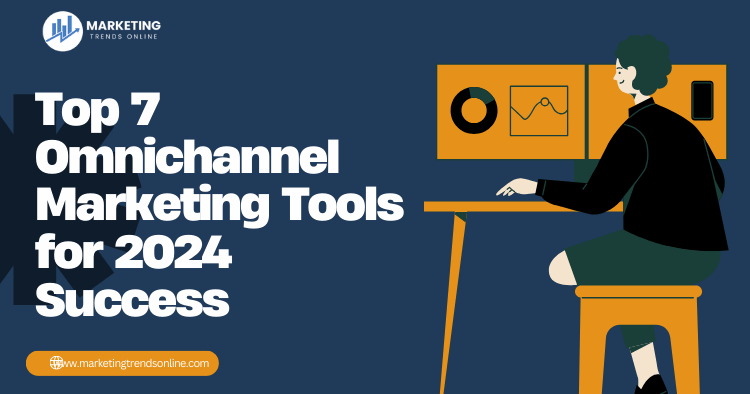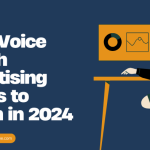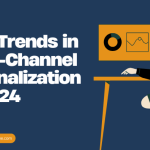Table of Contents
- Introduction
- 1. HubSpot
- 2. Salesforce Marketing Cloud
- 3. Adobe Experience Cloud
- 4. Klaviyo
- 5. ActiveCampaign
- 6. Omnisend
- 7. Zendesk
- Conclusion
- FAQs
Introduction
In the fast-paced world of digital marketing, businesses are continually seeking ways to engage customers across multiple channels seamlessly. Omnichannel marketing tools help businesses create a unified customer experience by integrating various platforms such as email, social media, websites, and brick-and-mortar stores. As we dive into 2024, it’s essential to equip your marketing strategy with the right tools to stay ahead of the competition. Below, we explore the top seven omnichannel marketing tools that can drive success for your business this year.
1. HubSpot
HubSpot is a leader in inbound marketing and offers a comprehensive suite of tools designed to enhance your omnichannel strategy. With features such as customer relationship management (CRM), email marketing, and social media management, HubSpot enables businesses to engage with customers at every touchpoint.
Key Features:
- Integrated CRM: Track customer interactions and improve relationships.
- Automation: Streamline marketing campaigns across various channels.
- Analytics: Measure campaign effectiveness and ROI.
“HubSpot’s user-friendly interface and extensive resource library make it an excellent choice for businesses of all sizes.”
For more information, check out HubSpot’s official site.
2. Salesforce Marketing Cloud
Salesforce Marketing Cloud offers powerful tools for managing customer journeys across different channels. Its robust capabilities allow businesses to personalize marketing messages and automate campaigns based on customer behavior.
Key Features:
- Journey Builder: Visualize customer journeys and create personalized experiences.
- Email Studio: Craft targeted email campaigns.
- Social Studio: Manage social media engagement and analytics.
“Salesforce’s comprehensive data integration capabilities ensure that businesses can leverage customer insights effectively.”
Learn more at Salesforce.
3. Adobe Experience Cloud
Adobe Experience Cloud provides a suite of tools designed to optimize customer experiences across all platforms. This powerful toolset includes analytics, content management, and personalized marketing solutions.
Key Features:
- Experience Manager: Create and manage content across channels.
- Analytics Cloud: Gain insights into customer behavior and campaign performance.
- Targeting and Personalization: Deliver tailored experiences based on customer data.
“Adobe’s emphasis on creativity and data-driven decisions makes it a top choice for brands focused on delivering exceptional experiences.”
Discover more at Adobe.
4. Klaviyo
Klaviyo is a popular choice for e-commerce businesses looking to enhance their email and SMS marketing strategies. Its user-friendly platform focuses on data-driven marketing, allowing brands to segment their audience effectively.
Key Features:
- Email Automation: Create automated workflows based on customer actions.
- Segmentation: Target specific customer groups with tailored messaging.
- Reporting: Analyze campaign performance in real-time.
“Klaviyo’s integration with various e-commerce platforms makes it easy to implement, ensuring you can reach your customers wherever they are.”
Check out Klaviyo for more details.
5. ActiveCampaign
ActiveCampaign is an all-in-one marketing platform that combines email marketing, automation, and CRM capabilities. Its versatility makes it an ideal solution for businesses aiming to engage customers across multiple channels.
Key Features:
- Automation Workflows: Create complex, automated workflows to nurture leads.
- CRM Integration: Manage customer relationships seamlessly.
- Messaging: Engage customers through email, SMS, and chat.
“ActiveCampaign is known for its affordability and scalability, making it perfect for startups and larger organizations alike.”
Visit ActiveCampaign for further insights.
6. Omnisend
Omnisend specializes in omnichannel marketing for e-commerce businesses, providing a suite of tools to maximize customer engagement. From email to SMS and web push notifications, Omnisend allows you to reach customers on their preferred platforms.
Key Features:
- Pre-built Automation Workflows: Get started quickly with ready-to-use templates.
- Segmentation and Personalization: Tailor messages to specific customer behaviors.
- Reporting and Analytics: Track the effectiveness of campaigns across channels.
“Omnisend’s focus on e-commerce makes it a valuable tool for online retailers looking to enhance customer interactions.”
Learn more at Omnisend.
7. Zendesk
Zendesk is primarily known for its customer service capabilities, but it also offers robust marketing tools that facilitate seamless omnichannel communication. Its platform helps businesses provide a consistent customer experience across various touchpoints.
Key Features:
- Support Ticketing System: Manage customer queries efficiently.
- Live Chat: Engage customers in real-time.
- Community Forums: Foster customer engagement and feedback.
“Zendesk’s ability to integrate customer support with marketing efforts makes it an excellent choice for businesses prioritizing customer satisfaction.”
Explore more at Zendesk.
Conclusion
As we look ahead to 2024, the importance of a coordinated omnichannel marketing strategy cannot be overstated. The right tools can make all the difference in creating personalized, engaging experiences for your customers. Whether you’re an e-commerce business or a large corporation, these top seven omnichannel marketing tools are designed to help you succeed in the competitive digital landscape.
FAQs
- 1. What is omnichannel marketing?
- Omnichannel marketing is a strategy that integrates multiple channels to create a seamless customer experience. It focuses on providing consistent messaging and engagement across platforms like email, social media, and in-store interactions.
- 2. Why is omnichannel marketing important?
- Omnichannel marketing is important because it enhances customer engagement, improves brand loyalty, and ultimately drives sales. Customers today expect a cohesive experience across all touchpoints, and businesses that deliver this are more likely to succeed.
- 3. How do I choose the right omnichannel marketing tool?
- When choosing an omnichannel marketing tool, consider your business size, budget, specific needs (like email marketing or CRM), and ease of use. Look for tools that integrate well with your existing systems and provide robust analytics.
- 4. Can small businesses benefit from omnichannel marketing?
- Absolutely! Small businesses can leverage omnichannel marketing to enhance customer experiences and compete with larger brands. Many tools are designed to be scalable and affordable, making them accessible to businesses of all sizes.
- 5. What are some trends in omnichannel marketing for 2024?
- Some trends include increased personalization through AI, the integration of augmented reality (AR), and a focus on sustainability in marketing practices. Businesses will need to adapt to these trends to remain competitive.
By keeping your marketing tools updated and leveraging the best omnichannel solutions available, you can create a cohesive and effective marketing strategy that will help you thrive in 2024 and beyond! For more insights on omnichannel strategies, consider checking out Top 7 Omnichannel Strategies for Seamless Customer Experience for additional guidance.





